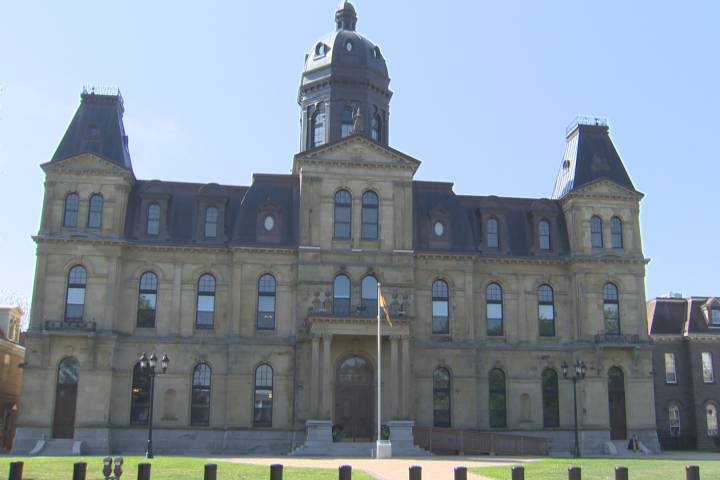A variety of polls leading up to next week’s New Brunswick election suggest the gap between the Liberals and Progressive Conservatives has narrowed, but a political scientist says the chance for a minority government may depend on the success of third party candidates.

Donald Wright, of the University of New Brunswick, said a good showing by third parties could be the deciding factor in the outcome of the election, but their chances are lessened by the current first-past-the-post voting system.
READ: As New Brunswick heads to the polls a fiscal reckoning looms
“I think if you look at 2014, 22 per cent of the electorate cast their ballots for third parties, but only one third party candidate was elected, and that was the Green leader,” Wright said.
“I think New Brunswickers are prepared to vote for so-called third parties but because of the inequities in the first past the post system, the larger parties benefit. That’s why we also have to talk about electoral reform.”
David Coon, the Green leader, is seeking re-election, while People’s Alliance Leader Kris Austin is seeking his first win after losing by just 26 votes in 2014.
Another factor could be Chris Collins in Moncton, who was elected last election as a Liberal, but running this time as an independent.

Get daily National news
Wright said if all three of them were to win their seats, it could have a real impact on the ability of the Liberals or Tories to win a clear majority, and not need third-party MLAs to side with them on confidence votes such as the budget.
At dissolution, the seat count in the legislature was 24 Liberals, 22 Progressive Conservatives, one Green, one independent and one vacancy.
“In the very specific situation, it’s very difficult to imagine a Chris Collins supporting a Liberal minority government, given the bad blood between Collins and the Liberal party,” Wright said.
“Likewise it’s very difficult to imagine the Green party supporting a Conservative minority government. Why would they? They are more ideologically compatible with the Liberal party. Why would the People’s Alliance support the party of bilingualism, which is the Liberal party. They are more likely to support the Conservative party because they see the Conservatives as being the party of fiscal restraint.”
WATCH: NB Election 2018: Saint John Harbour up for grabs

He said it’s very difficult to imagine the three of them being on the same page to support one party.
In the past, New Brunswick has elected only a handful of third-party candidates. In 1991, the Confederation of Regions party won eight seats and the role of official opposition, but were only there for one term.
There have been three separate New Democrats elected to the provincial legislature, but the party has not held a seat since 2005.
Wright said there’s a need to discuss electoral reform.
“There are many models out there, but the goal of any proportional representation system is to have the legislature look like how people voted,” he said.
Former Tory premier Bernard Lord commissioned a report on electoral reform, but he didn’t pursue it, and now the report just gathers dust.
The current Liberal government has stated, that if they’re elected, they’d have a referendum on the issue by 2020.
But Wright said the Liberals and Conservatives will be reluctant to change from the current voting system because they benefit from it.







Comments